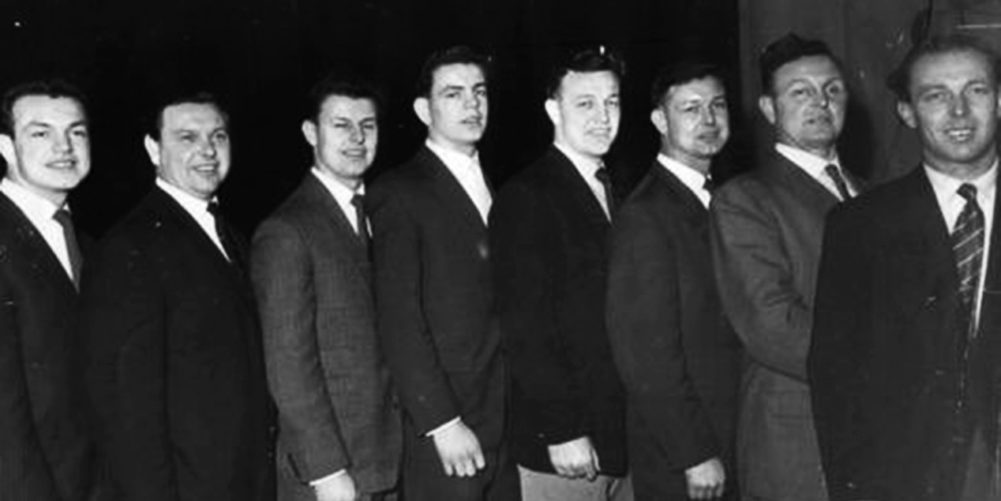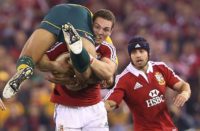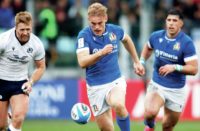THE MAN TRULY IN THE KNOW
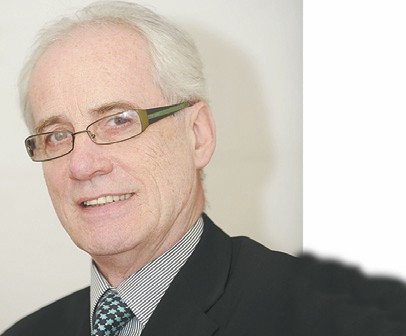
The eight sons of Arthur Williams from Taff's Well shall forever hold a unique place in rugby folklore, a brotherhood like no other whose careers spanned five decades.
The statement requires reaffirmation in the wake of the Grim Reaper's remorseless onslaught. The eight, all of whom played for Cardiff at a time when they justified their selfanointed boast as ‘The Greatest' of clubs, are now down to one.
Elwyn Williams, the only one of the octet to play in the pack and remain there throughout 339 matches over 14 seasons without once being substituted, died earlier this month at the age of 83. His passing leaves Cenydd, 84 during the summer, as the sole survivor.
The quality of the eight goes far beyond their collective total of more than 1,600 games at the highest club level from the late Thirties to the mid-Seventies. Four of the eight – Bleddyn, Lloyd, Cenydd and Tony – played for the Barbarians.
Two of the quartet, Bleddyn and Lloyd, captained Wales. One, Bleddyn, captained the Lions as befitting a centre whose mesmeric sidestep led to his christening as “the prince of centres”.
Never can so many above-average rugby players have made a bigger, longer-lasting impact from such a small place: all born, along with their four sisters, in the same house at 11 Moy Road in a mining village a mile or two north of Cardiff.
Gwyn started the ball rolling with his debut on the wing at the Arms Park as a teenager in 1938. He signed for Wigan that same season on borrowed time, squeezing in 32 matches before the outbreak of the Second World War. He would never play again.
“Gwyn was the oldest and I loved him to bits,” says his sister Mair. “He was shot through the eye during the campaign in North Africa and the bullet came out through his head. He survived and moved down to Dorset for the rest of his life.”
In the immediate postwar years, Wigan moved heaven and earth in an ultimately futile attempt to sign Gwyn's younger brother, Bleddyn, still renowned by historians the world over as one of the game's all-time greats.
A decade or so later, in 1962, another Williams centre from the same Taff 's Well cradle went north. Cenydd, the sixth of the eight who survived a heart attack during a round of golf last year, enjoyed seven rewarding seasons at St Helens and still lives in the area with Jean, his wife of 60 years.
“I count my blessings that played when I did … Now money seems to be king”
During his national service, Williams VI played for the RAF alongside another youngster who would take League by storm, Alex Murphy. “We played a match in France,” Cenydd said. “Afterwards Alex said: ‘Do you want come for a walk'.
“I decided to stay with the rest of the lads. I never twigged what he wanted to talk about until a scout from St Helens turned up in Taff 's Well and said: ‘Alex Murphy has recommended that we sign you as soon as possible.'
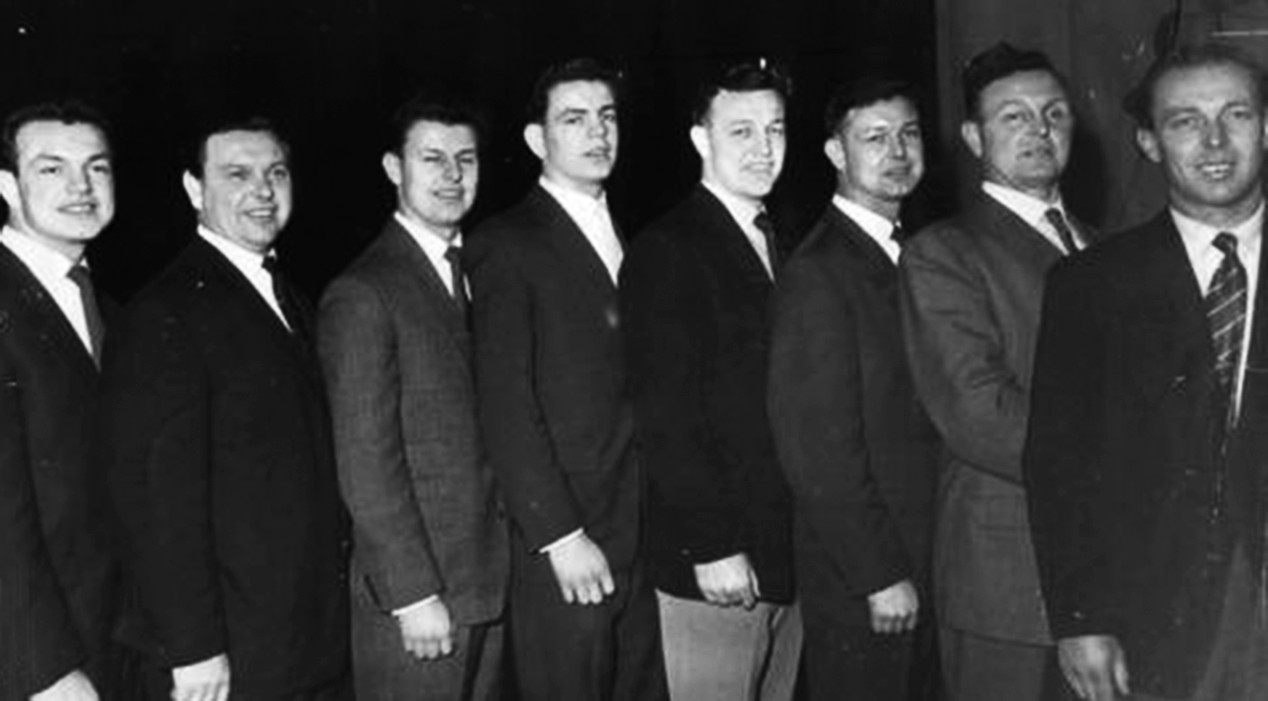
The Williams Eight
Gwyn Born 1918, died 1996 aged 78. Cardiff RFC (17 matches), Wigan RLFC (32), Wales RL (1). Wing.
Brinley Born 1920, died 2011, aged 90. Cardiff RFC (20 matches). Centre.
Bleddyn Born 1923, died 2009, aged 86. Cardiff (281 matches), Barbarians (11), Wales (22), Lions (19). Centre.
Vaughan Born 1931, died 2005, aged 74. Cardiff (3 matches). Centre.
Lloyd Born 1933, died 2017, aged 83. Cardiff (308 matches), Barbarians (3), Wales (13). Scrum-half.
Cenydd Born 1938. Cardiff (115 matches), Barbarians (1), St Helens RLFC (108). Centre.
Elwyn Born 1939, died 2022, aged 83. Cardiff (339 matches). Back row.
Tony Born 1940, died 2013, aged 73. Cardiff (328 matches), Barbarians (2). Fly half, centre.
And the Williams' sisters
Dilys (1915-2005)
Enid (1925-2019)
Joan (1927-2013)
Mair (1935-)
“I turned them down. Then I got married and Saints rang me up with a renewed offer of £4,000. I said to my wife: ‘I'll ask for six.' They said ok and I signed. I never had any regrets.”
Bleddyn had come close to crossing the same Rubicon some 10 years earlier. “Harry Platt, the Wigan manager, had asked me about turning professional in 1944 and followed that up by offering £5,000,” he told me. “I said: ‘If I ever contemplate going to League, I'll give you first refusal'.
“He said: ‘Is that a promise?'
“I said it was. After the war, Harry approached me again. I said: ‘I don't think there's any chance I'll ever turn professional but my promise holds good'.''
Leeds offered a world record fee. “I nearly went,” Bleddyn said. “As well as £6,000 in my hand there was the promise of a decent job because I'd had a reasonable education. In the end I turned it down.
“When Harry got to hear about the Leeds approach, he was back on the phone. I said: ‘Harry, I'm not going but if I had decided to go, I'd have been straight onto you, as I promised'.
“The money was tempting but I never wanted to go. There were two reasons. Firstly, I loved Rugby Union and, secondly, I'd had a scholarship to Rydal School and I felt that somewhere along the line I'd be letting them down if I cashed it all in to play Rugby League.
“I count my blessings that I played when I did, when you played for the immense pride of representing your club and country. That was reward enough. Now money seems to be king and the game is the poorer for it.''
For exclusive stories and all the detailed rugby news you need, subscribe to The Rugby Paper website, digital edition, or newspaper from as little as 14p a day.

